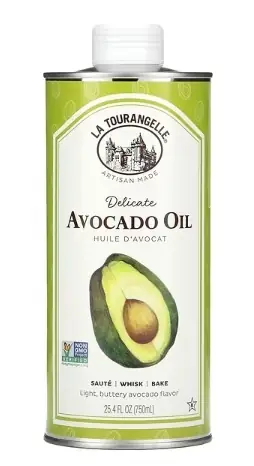What Are the Established Health Benefits of Avocado

Tasty and nutritious, this fruit truly deserves the ‘superfood’ label it often gets. What are the health benefits of avocado? Which variety to choose from, the Hass or the green-skin one? How do you brew antioxidant-rich tea from the plant’s seed? Read on, and you will get the answers to all these and numerous other questions.
What Are the Health Benefits of Avocado Pear?
Here are the main benefits of this exceptional fruit to your health.
Extremely Nutritious
The fruit of the plant (that is often called an avocado pear) is very rich in vitamin K as well as vitamins B5 (pantothenic acid), B6 (pyridoxine), and B9 (folate). It is also a good source of vitamins C (ascorbic acid), B1 (thiamine), B2 (riboflavin), B3 (niacin), and E (tocopherol). What’s more, avocados contain high quantities of potassium, magnesium, manganese, phosphorus, and zinc.
As B vitamins are required for energy metabolism, eating avocados promotes your body’s energy. Folate is extremely important for pregnant women as it helps to avoid neural tube defects in newborn babies. Magnesium is an essential mineral that is required for all kinds of chemical reactions in living cells, while zinc is crucial for eyesight, skin health, taste, and olfactory subsystem, as well as the proper function of the immune and nervous systems. Phosphorus is one of the building blocks of DNA and essential for bone health; potassium is required for a wide variety of enzymes and takes part in blood pressure control; manganese is used by the body as a coenzyme in numerous biochemical reactions.
Contains Antioxidant Compounds
Both vitamins C and E that can be found in the fruit are powerful antioxidants that protect cells from harmful free radicals. What’s more, avocados are also rich in such natural antioxidant compounds as flavonoids (including quercetin), anthocyanidins, tocopherols, and carotenoids. A 2020 study concludes that regular consumption of this fruit can noticeably increase plasma antioxidant levels.
Promotes Gut Health
Avocados are also a very good source of dietary fiber, i.e. organic compounds that cannot be broken down in your stomach. Dietary fiber serves two important roles. First, it helps you feel full while not giving you any calories: this can be especially important if you want to avoid weight gain or would like to shed extra pounds. Second, it feeds beneficial bacteria in your intestine: while crucial to your gut health, these microorganisms have also been proven to be extremely important for the immune system.
In a 2021 study it was found that men who consumed at least 175 grams and women who ate at least 140 grams of this fruit per day managed to noticeably increase bacterial diversity in their gut.
Abundant in ω-9 Fats
When it comes to fat composition, avocado is truly in a league of its own.
There is a popular theory that in a typical modern Western diet the ratio of ω-6 to ω-3 fatty acids is higher than 15:1 which can lead to numerous chronic health issues like atherosclerosis, rheumatoid arthritis, inflammatory bowel disease, and cardiovascular disease.
It is therefore recommended that the ratio of ω-6 to ω-3 fatty acids in your diet be between 1:1 and 4:1. To achieve this you are advised to consume more ω-3-rich foods (like fish, fish oil, and flaxseed oil) and reduce your consumption of ω-6-rich foods (like nuts, eggs, cereals, poultry, mayonnaise, and corn oil).
What’s more, instead of potentially unsafe ω-6-rich foods you can use ω-9-rich foods like olives, olive oil — and avocados. Fat constitutes nearly 15% of avocado pear weight, and about 71% of this quantity is made up of ω-9 fatty acids. Thus, it is a really good idea to swap mayonnaise in your daily ration for a piece of avocado pear, and use avocado oil instead of corn oil for your recipes.
May Help Improve Cholesterol Balance
In a 2018 meta-analysis it was found that consuming this fruit can help increase serum levels of “good” HDL cholesterol. On the other hand, a 2020 study demonstrated that one fruit a day can lead to a decrease in “bad” LDL cholesterol. Although additional research is required, both these effects can improve cardiovascular health.
May Improve Satiety
A combination of high dietary fiber content and large quantities of ‘good’ ω-9 fatty acids can help you feel full for a longer time as was demonstrated in a 2013 study. What’s more, in two 2019 studies it was found that regular consumption of avocados may have a small yet noticeable positive effect on body weight. Still, avocados are no magic bullet: use them instead of (and not together with) foods that are rich in rapid-absorption carbohydrates and ω-6 fatty acids.
What Are the Health Benefits of Eating Avocados of the ‘Hass’ Cultivar?
Hass avocados can easily be told by their large size and dark green (almost brown) skin with bumps in it. Although this cultivar is extremely popular in the US and other countries, it does not offer considerable health advantages compared to other cultivars (in general, the main difference between them is that the Hass avocado offers a higher fat content).
There are two main reasons why the Hass got considerably more popular than other cultivars:
- When the Hass gets ripe, its skin gets a brownish-blackish color. Thus, consumers who buy the Hass can be 100% sure that it can be immediately eaten;
- The Hass has a longer shelf-life compared to green-skin avocados, which is important for sellers.
What Special Health Benefits Does a Green-Skin Avocado Have?
As a green-skin avocado contains less fat (23 grams per cup) compared to the Hass variety (35 grams of fat per cup), it can be used by people who want to absolutely limit their fat consumption.
Still, the fat in the Hass variety is mostly made up of healthy ω-9 fatty acids. Thus, it might be more reasonable to limit the quantities of ω-6-rich foods in your diet while freely using Hass avocados.
On the other hand, the leaner green-skin avocados are easier to slice and dice for salads. Variety is the spice of life, as they say.
What Are the Health Benefits of Avocado Leaves?
Avocado leaves are rich in a natural antioxidant called quercetin, so, as the proponents of the beverage claim, if you use them to brew tea, it will be very good for your general health. Still, the research into the effects of avocado leaves on health was only conducted on mice and rats, and, as of now, there are no studies that would have involved human patients.
What’s more, the leaves of the plant contain an oil-soluble compound called persin that makes them toxic to many animals, birds, and fish. While persin, in theory, cannot be dissolved in the water you use to make tea, health specialists still recommend that you do not drink more than 2 cups of such beverage per day.
Here is how you brew avocado leaves tea:
- Either add boiling water (2 cups) to 3 or 4 dried leaves and let your tea steep for 10 minutes;
- Or bring the water (2 cups) with 4-5 clean fresh leaves in it to a boil, and let it simmer for at least 10 minutes.
What Are the Health Benefits of Avocado Seed?
While you cannot eat the pit of the fruit, it is possible to use it to brew bitter-tasting avocado seed tea. Unfortunately, there are no reliable scientific studies (even on animals, let alone people) that would confirm the alleged health benefits of such a beverage. Still, the seed of the plant (just like its leaves) is rich in quercetin and other flavonoids, so the proponents of this tea believe that it can help you feel energetic.
Here is how you brew avocado seed tea:
- To make the pit soft, you need to let it boil for about 5 minutes. Determine whether it has become soft enough using a long wooden spoon.
- Let the pit cool and then slice it using a sharp knife into numerous small pieces.
- Use your food processor to grind these pieces into a powder.
- Now you can add this powder to two cups of boiling water and let it simmer for about 8 minutes.
- Your tea is ready, strain and drink it. You might want to use a bit of honey (or stevia if you prefer zero-calorie sweeteners) to sweeten this noticeably bitter beverage.
Here you can find more information about avocado leaves and seed.
What Are the Health Benefits of Avocado Oil?
As avocado oil is very rich in ω-9 fatty acids, you can use it for your salads and other dishes to bring down your consumption of potentially unsafe ω-6-rich foods. What’s more, as avocado oil has a high smoke point (482°F or 250°C), it can also be used for frying.
As this oil is very rich in nutrients, it can also be used for skin nourishment and hair care.
Here is one of the most popular avocado oils that comes from a well-known brand:
Delicate Avocado Oil by La Tourangelle

- Expeller (i.e. mechanically)-pressed
- Non-GMO; light and buttery flavor
Now you know what are the health benefits of avocado. Still, even the best superfood in the world won’t improve your health if you neglect to do physical exercise, have a balanced diet, and get enough sleep. Your wellness depends on many factors: do your best to take care of all of them.